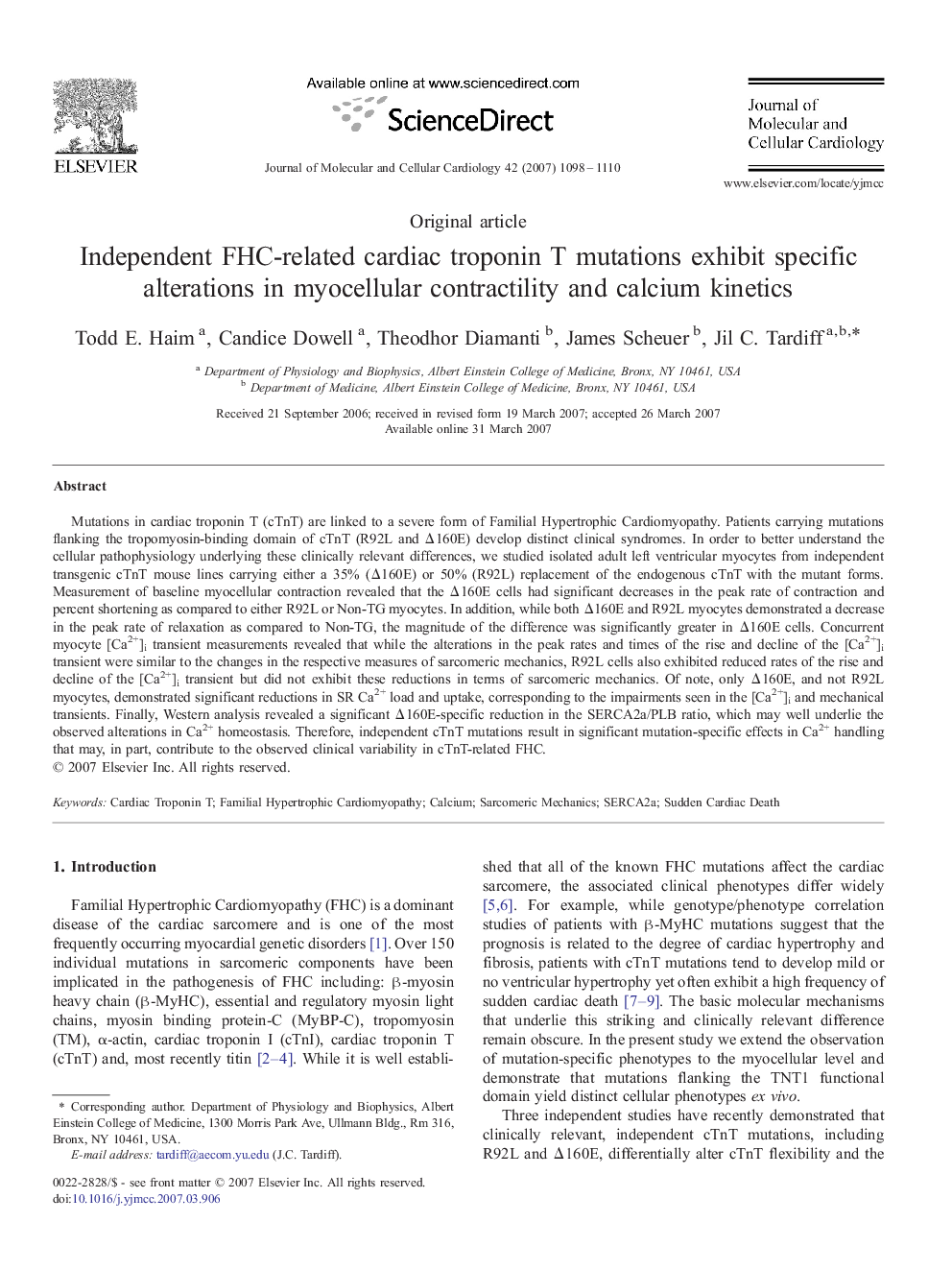| Article ID | Journal | Published Year | Pages | File Type |
|---|---|---|---|---|
| 2192154 | Journal of Molecular and Cellular Cardiology | 2007 | 13 Pages |
Mutations in cardiac troponin T (cTnT) are linked to a severe form of Familial Hypertrophic Cardiomyopathy. Patients carrying mutations flanking the tropomyosin-binding domain of cTnT (R92L and Δ160E) develop distinct clinical syndromes. In order to better understand the cellular pathophysiology underlying these clinically relevant differences, we studied isolated adult left ventricular myocytes from independent transgenic cTnT mouse lines carrying either a 35% (Δ160E) or 50% (R92L) replacement of the endogenous cTnT with the mutant forms. Measurement of baseline myocellular contraction revealed that the Δ160E cells had significant decreases in the peak rate of contraction and percent shortening as compared to either R92L or Non-TG myocytes. In addition, while both Δ160E and R92L myocytes demonstrated a decrease in the peak rate of relaxation as compared to Non-TG, the magnitude of the difference was significantly greater in Δ160E cells. Concurrent myocyte [Ca2+]i transient measurements revealed that while the alterations in the peak rates and times of the rise and decline of the [Ca2+]i transient were similar to the changes in the respective measures of sarcomeric mechanics, R92L cells also exhibited reduced rates of the rise and decline of the [Ca2+]i transient but did not exhibit these reductions in terms of sarcomeric mechanics. Of note, only Δ160E, and not R92L myocytes, demonstrated significant reductions in SR Ca2+ load and uptake, corresponding to the impairments seen in the [Ca2+]i and mechanical transients. Finally, Western analysis revealed a significant Δ160E-specific reduction in the SERCA2a/PLB ratio, which may well underlie the observed alterations in Ca2+ homeostasis. Therefore, independent cTnT mutations result in significant mutation-specific effects in Ca2+ handling that may, in part, contribute to the observed clinical variability in cTnT-related FHC.
